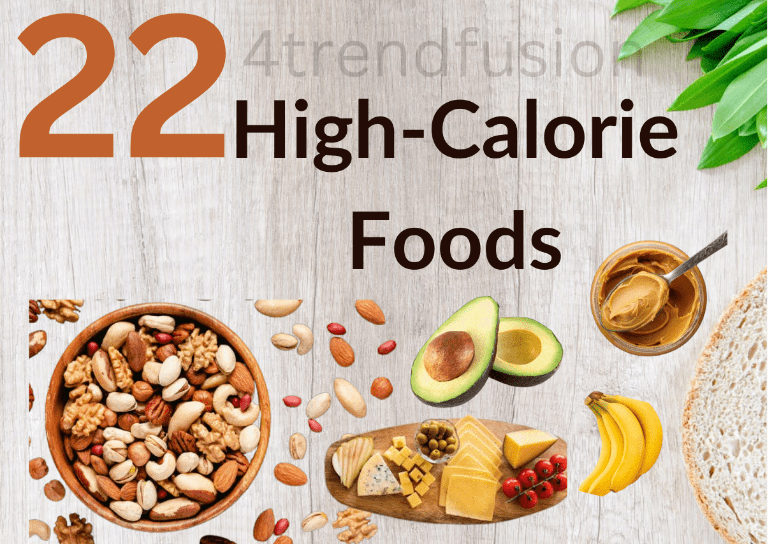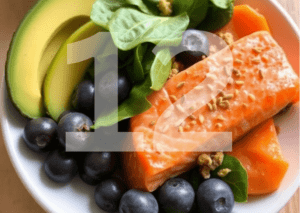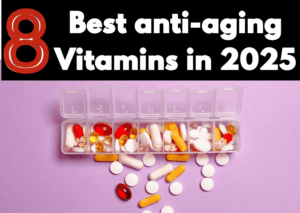Introduction
Gaining weight in a healthy and sustainable way often starts with incorporating a high-calorie foods into your daily routine. While most people focus on cutting calories, those looking to add weight need a strategic approach that includes nutrient-dense, calorie-rich options.
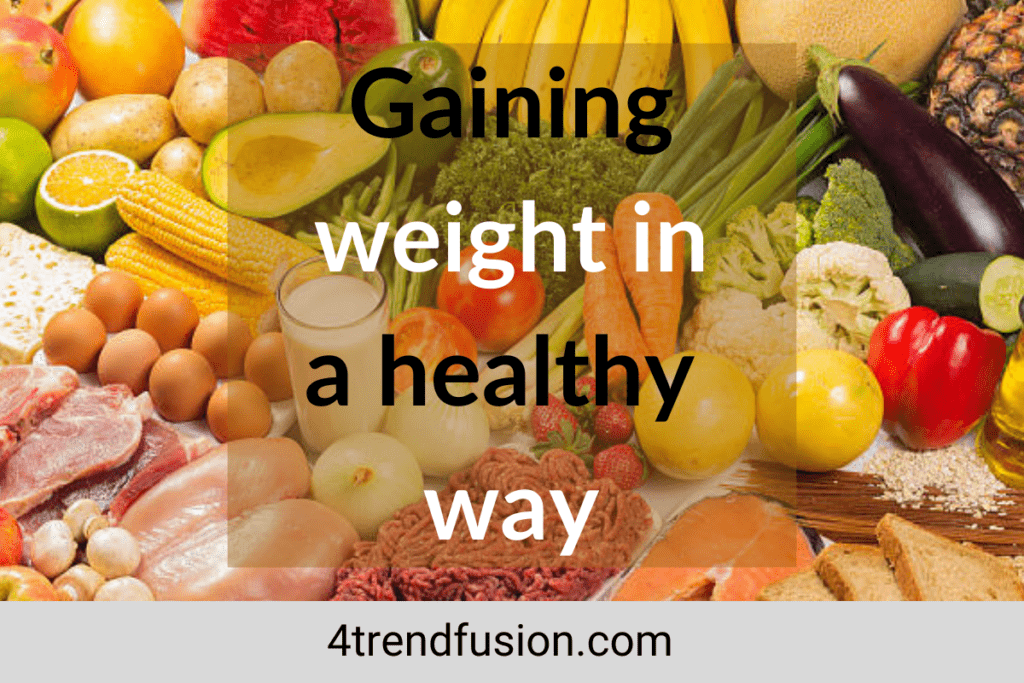
High-calorie foods provide the necessary energy, protein, and healthy fats to promote muscle growth, improve recovery, and fuel daily activities. Whether you’re an athlete, bodybuilder, or simply trying to put on weight, understanding which foods offer the best caloric value can make all the difference.
1. Nuts (Almonds, Walnuts)
Nuts are a powerhouse of high-calorie nutrition, perfect for weight gain. Packed with healthy fats, protein, and essential vitamins, they make an excellent snack or a topping for meals.
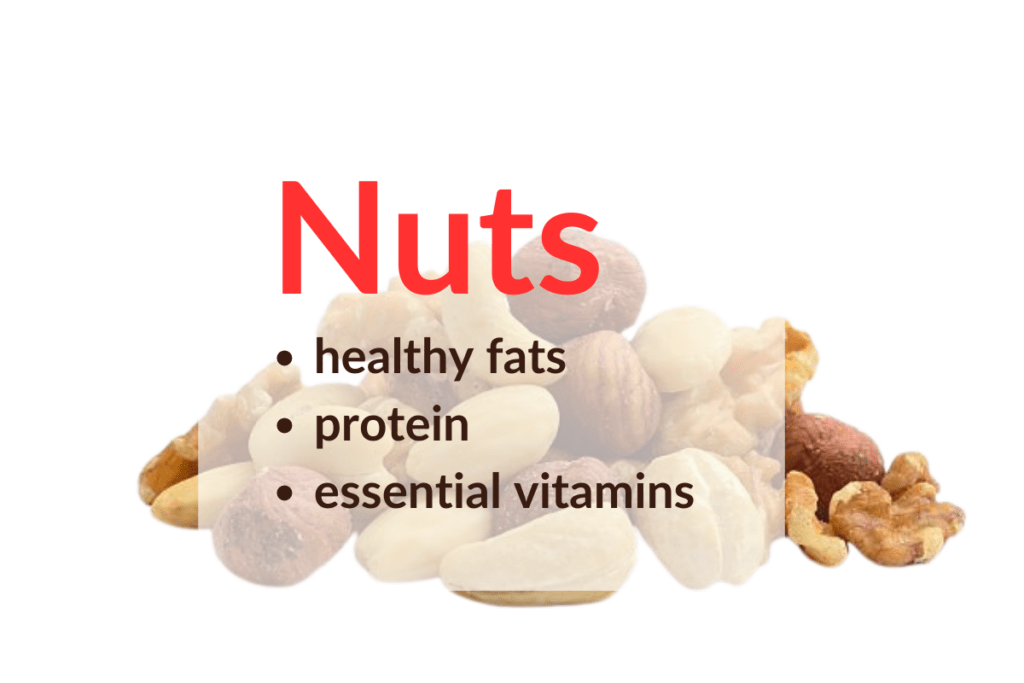
Best time to eat: Morning or as a midday snack. Nuts are a high-calorie option rich in healthy fats and protein, perfect for sustained energy throughout the day. Pairing them with fruits can enhance digestion and nutrient absorption.
When not to eat: Avoid eating too many at night, as they are calorie-dense and may cause discomfort during sleep.
Per Serving (1 oz):
- Calories: 160-200
- Fats: 14-18g
- Protein: 4-6g
- Carbs: 5-7g
- Fiber: 2-3g
- Sugar: 1g
Pro Tip: Combine nuts with dried fruits for a calorie-dense trail mix, or add them to oatmeal or smoothies for a nutrient boost.
2. Peanut Butter
Peanut butter is a calorie-dense spread packed with protein, healthy fats, and energy-boosting nutrients. It’s a versatile ingredient that pairs well with bread, smoothies, or fruits like bananas.
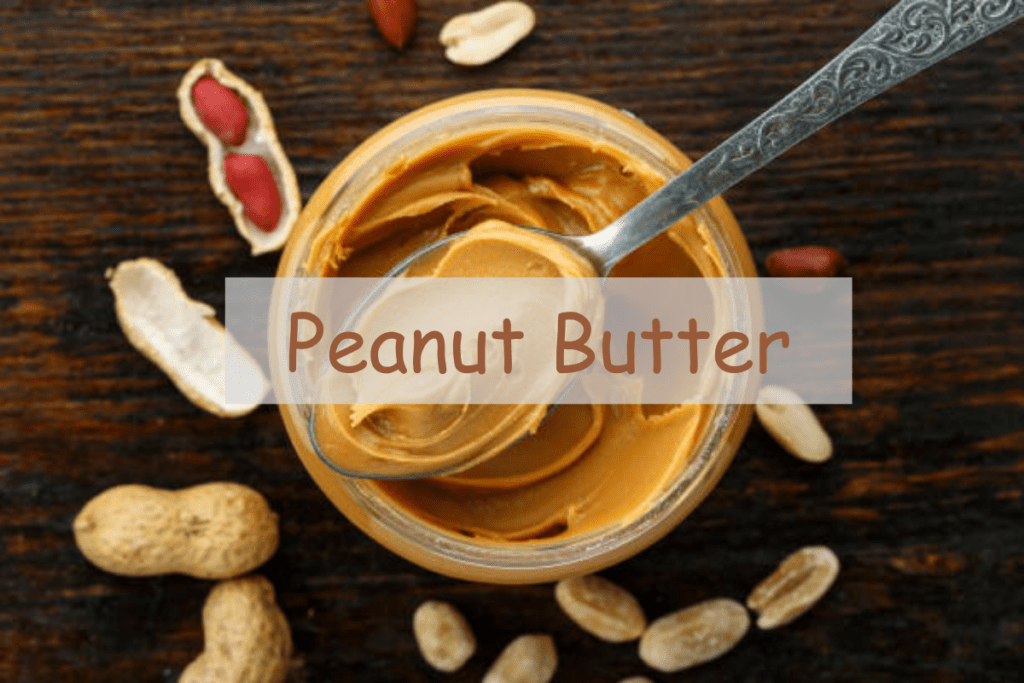
Best Time to Eat: Breakfast or pre-workout for sustained energy.
When not to eat: Avoid overconsumption at night due to its high-fat content, which may disrupt digestion and lead to excess calorie intake.
Per Serving (2 tbsp):
- Calories: 190
- Fats: 16g
- Protein: 7g
- Carbs: 7g
- Fiber: 2g
- Sugar: 3g
Pro Tip: Choose natural peanut butter without added sugar or hydrogenated oils for a healthier option.
3. Whole Milk
Whole milk is a high-calorie drink packed with protein and fats, ideal for muscle recovery and healthy weight gain. Adding it to shakes enhances calorie intake.
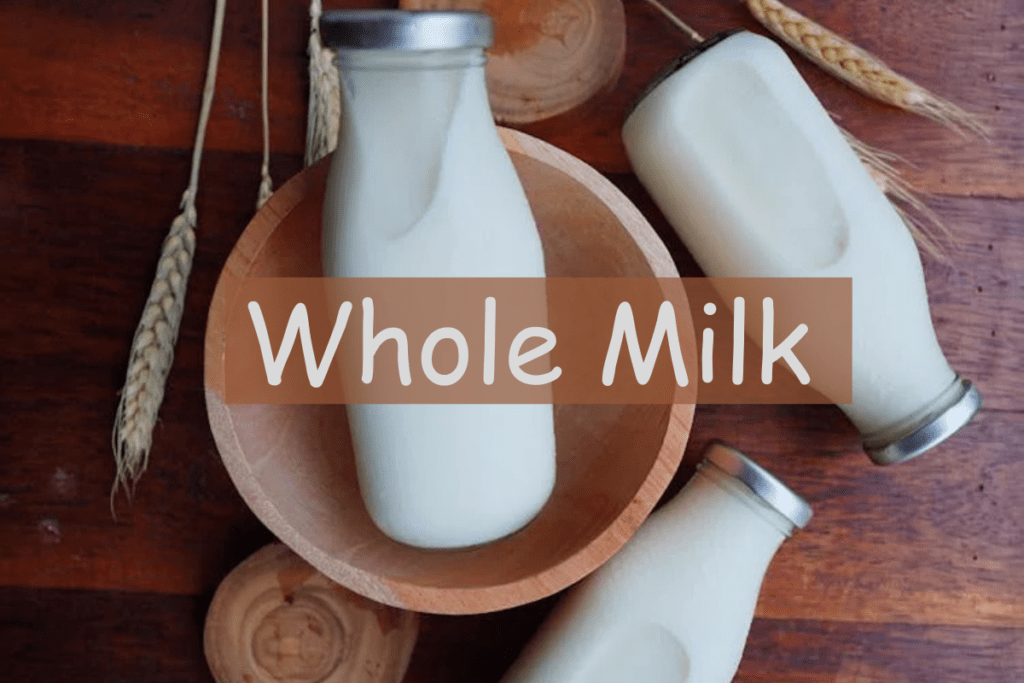
Best time to Drink: Breakfast or post-workout.
When not to Drink: Avoid drinking too much before bed, as it may cause bloating or interfere with sleep.
Per Serving (1 cup):
- Calories: 150
- Fats: 8g
- Protein: 8g
- Carbs: 12g
- Fiber: 0g
- Sugar: 12g
Pro Tip: Add whole milk to your coffee, cereal, or protein shakes for extra calories.
4. Cheese
Cheese is a high-calorie, nutrient-dense food with calcium and protein, perfect for gaining weight. Use it in sandwiches or salads for added flavor.

Best time to use: Lunch or as a snack
When not to use: Avoid consuming excessive cheese at night to prevent bloating or overloading on fats before bed.
Per Serving (1 oz):
- Calories: 110-120
- Fats: 9g
- Protein: 6-7g
- Carbs: 1g
- Fiber: 0g
- Sugar: 0g
Pro Tip: Add cheese to sandwiches, pasta, or scrambled eggs for a flavorful calorie boost.
5. Avocados
Avocados are a high-calorie fruit rich in healthy fats, making them ideal for breakfast or as part of a salad. They provide energy and help with nutrient absorption.
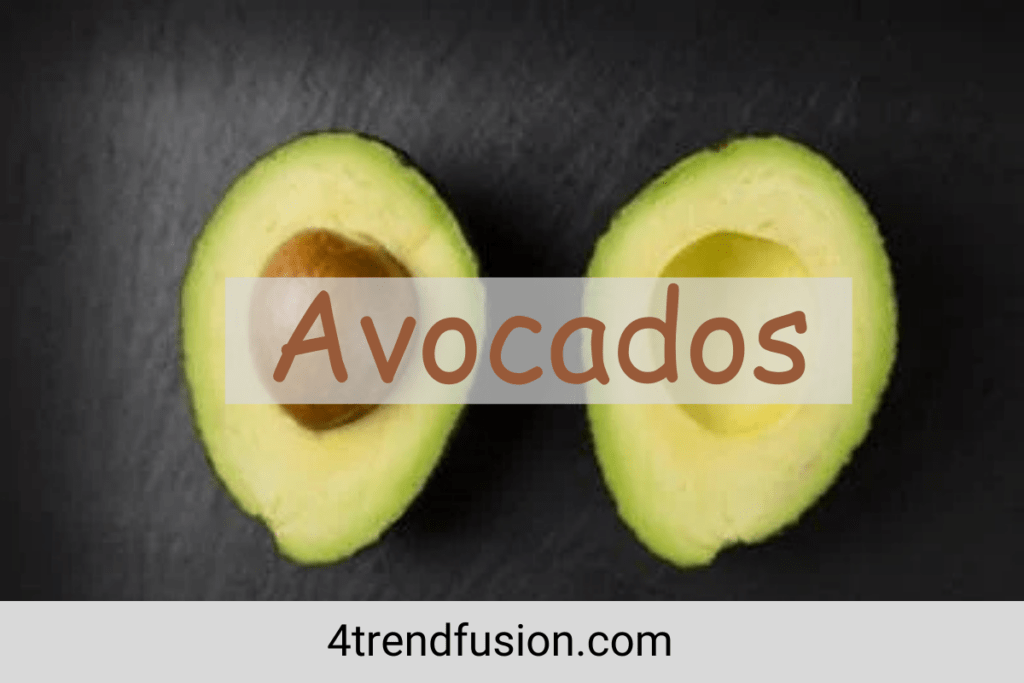
Best time to eat: morning or lunch.
When not to eat: Avoid overconsumption late at night as the fats might be hard to digest.
Per Serving (1/2 avocado):
- Calories: 160
- Fats: 15g
- Protein: 2g
- Carbs: 9g
- Fiber: 7g
- Sugar: 0.5g
Pro Tip: Spread avocado on toast, add it to salads, or blend it into smoothies for creamy richness.
6. Bananas
Bananas are a high-calorie fruit that provides quick energy and supports muscle recovery. Pairing them with peanut butter can increase calorie intake.
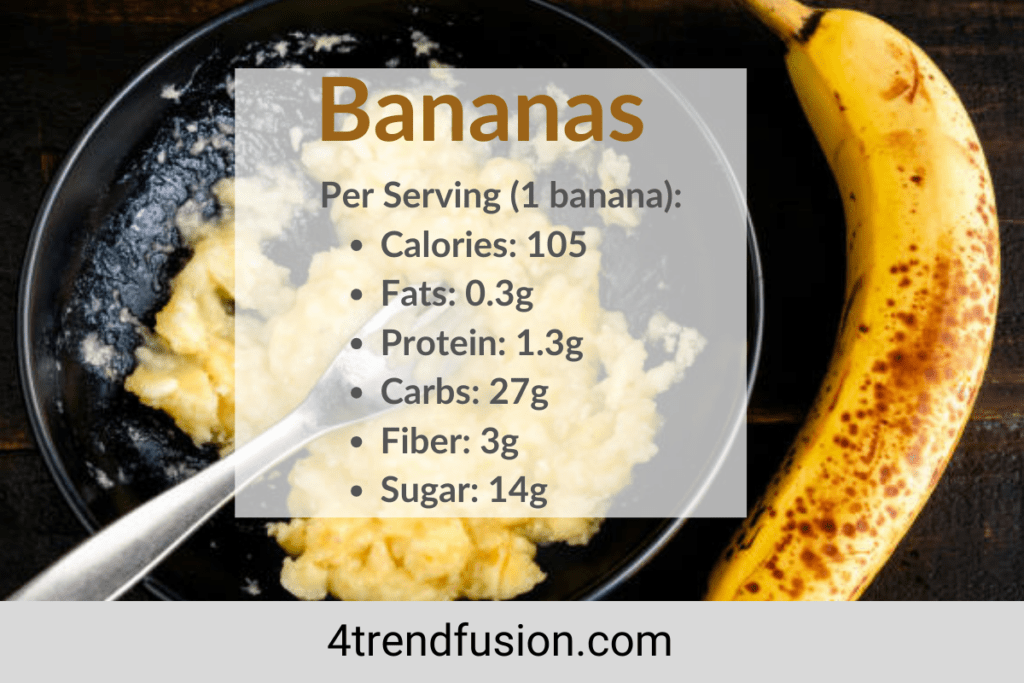
Best time to eat: Morning or as a pre/post-workout snack.
When not to eat: Avoid eating too many at night, as the natural sugars may lead to a sudden energy spike, disrupting sleep.
Per Serving (1 medium banana):
- Calories: 105
- Fats: 0.3g
- Protein: 1.3g
- Carbs: 27g
- Fiber: 3g
- Sugar: 14g
Pro Tip: Pair bananas with peanut butter or blend them into smoothies for a calorie-packed snack.
7. Eggs
Eggs are a high-calorie source of protein and healthy fats, perfect for building muscle and staying energized. Hard-boiled eggs make a quick snack option.

Best time to eat: Breakfast or post-workout.
When not to eat: Avoid eating too many eggs late at night, as they may be harder to digest for some people.
Per Serving (1 large egg):
- Calories: 70
- Fats: 5g
- Protein: 6g
- Carbs: 0.5g
- Fiber: 0g
- Sugar: 0g
Pro Tip: Enjoy eggs boiled, scrambled, or in an omelet with cheese and veggies for added nutrients.
8. Red Meat
Red meat is a high-calorie food rich in protein and iron, ideal for muscle building and weight gain. It pairs well with rice or potatoes.
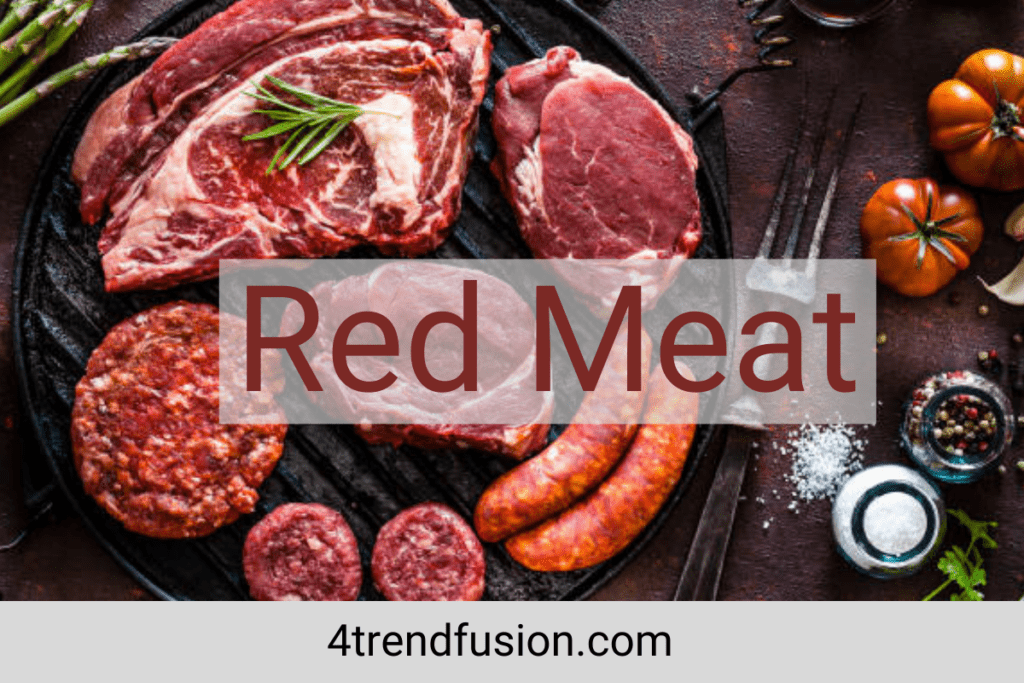
Best time to eat: Lunch or dinner.
When not to eat: Avoid eating it late at night, as it takes longer to digest and may disrupt sleep.
Per Serving (3 oz cooked):
- Calories: 250
- Fats: 18g
- Protein: 22g
- Carbs: 0g
- Fiber: 0g
- Sugar: 0g
Pro Tip: Grill or sauté red meat with olive oil and serve with vegetables for a balanced meal.
9. Salmon
Salmon is a high-calorie fish packed with healthy omega-3 fats and protein, supporting muscle growth and overall health. Grilled salmon is a great option.
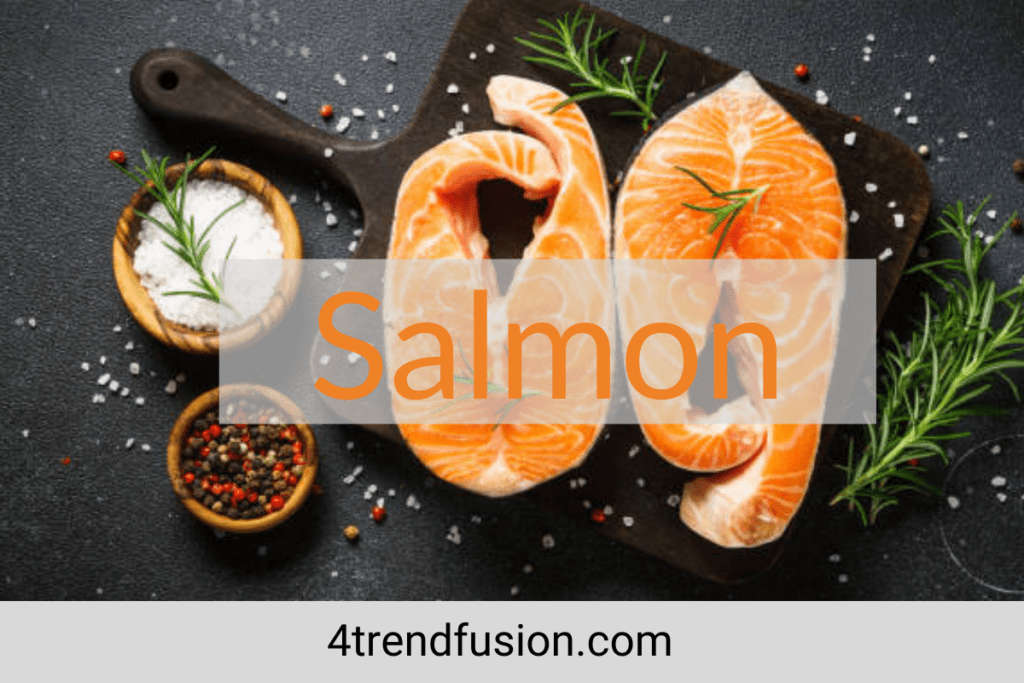
Best time to eat: Lunch or dinner.
When not to eat: Avoid eating it too close to bedtime, as the fats may cause indigestion in some individuals.
Per Serving (3 oz cooked):
- Calories: 200
- Fats: 13g
- Protein: 22g
- Carbs: 0g
- Fiber: 0g
- Sugar: 0g
Pro Tip: Pair grilled salmon with rice and veggies for a complete meal.
10. Rice
Rice is a high-calorie carbohydrate source that provides sustained energy and is excellent for weight gain when paired with protein-rich foods like chicken or beans.
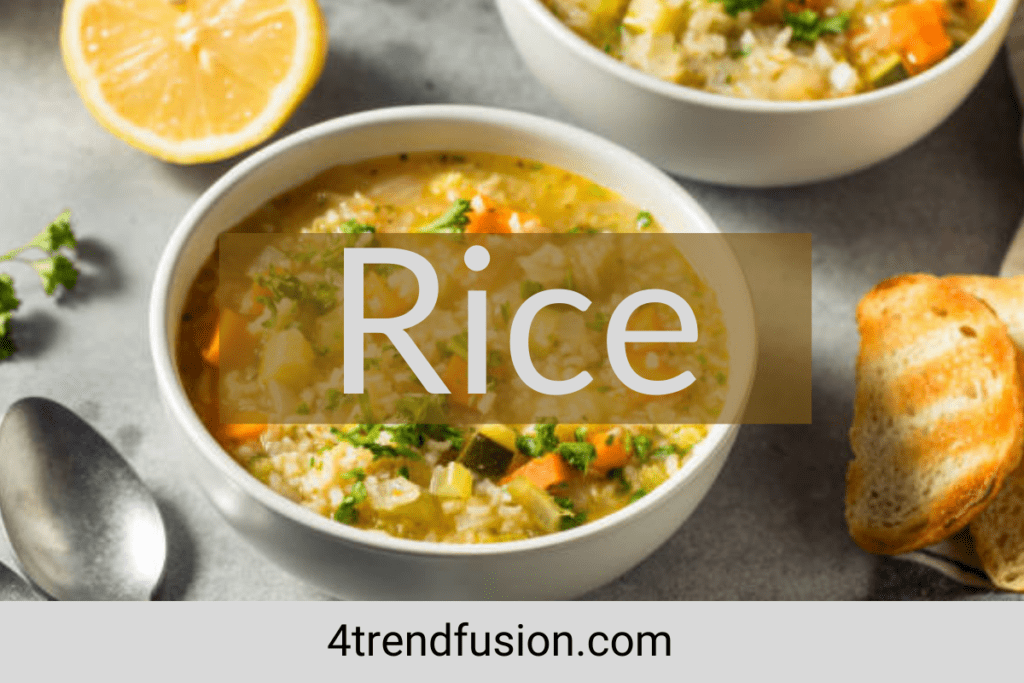
Best time to eat: Lunch or dinner.
When not to eat: Avoid eating large portions at night, as excess carbs may store as fat if not utilized.
Per Serving (1 cup cooked):
- Calories: 200
- Fats: 0.4g
- Protein: 4g
- Carbs: 45g
- Fiber: 0.6g
- Sugar: 0g
Pro Tip: Combine rice with proteins like chicken or beans and add a drizzle of olive oil for extra calories.
11. Potatoes
Potatoes are calorie-dense and packed with carbs, fiber, and essential nutrients like potassium.
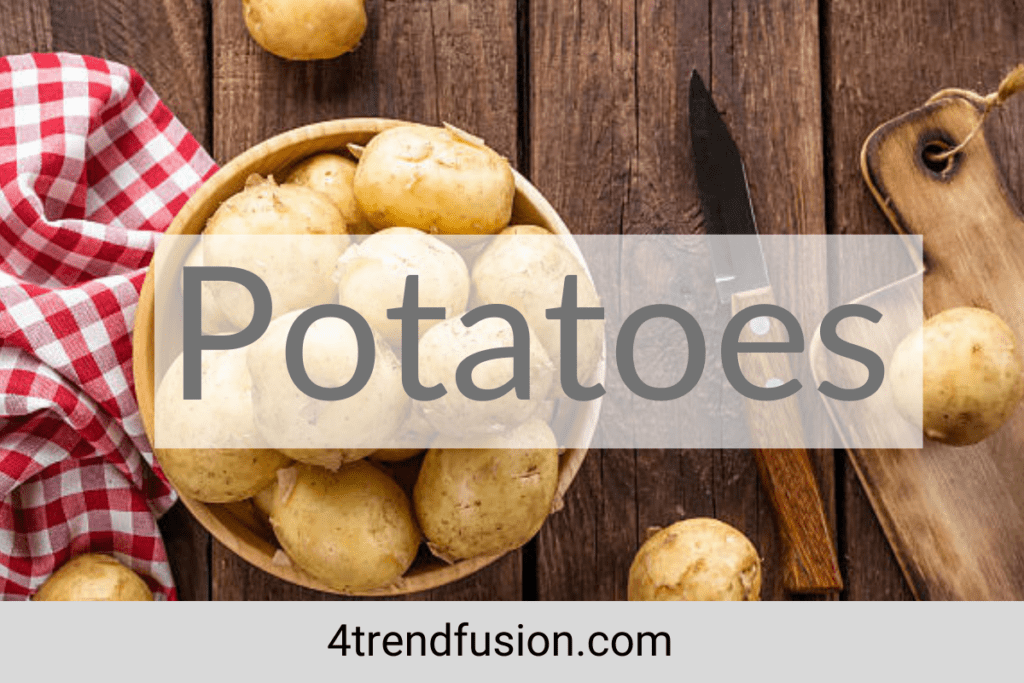
Best Time to Eat: Lunch or dinner.
When not to eat: Avoid eating fried potatoes late at night.
Per Serving (1 medium potato, baked):
- Calories: 160
- Fats: 0.2g
- Protein: 4g
- Carbs: 37g
- Fiber: 4g
- Sugar: 2g
Pro Tip: Mash potatoes with butter or cream for an indulgent, high-calorie dish.
12. Pasta
Pasta is a calorie-packed carb source that’s ideal for energy-dense meals.
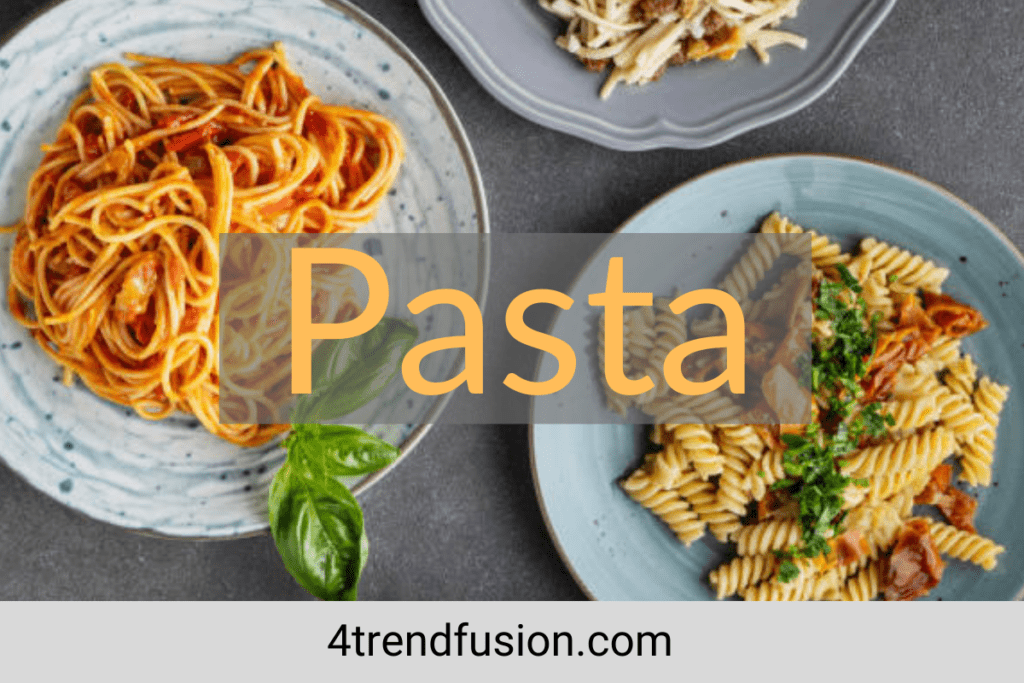
Best Time to Eat: Lunch or dinner.
When not to eat: Avoid consuming too much late at night as it’s slow to digest.
Per Serving (1 cup cooked):
- Calories: 220
- Fats: 1g
- Protein: 8g
- Carbs: 43g
- Fiber: 2g
- Sugar: 1g
Pro Tip: Add olive oil, cheese, and lean protein to pasta for a calorie-dense meal.
13. Granola
Granola is a crunchy, high-calorie snack loaded with fiber, healthy fats, and natural sugars.
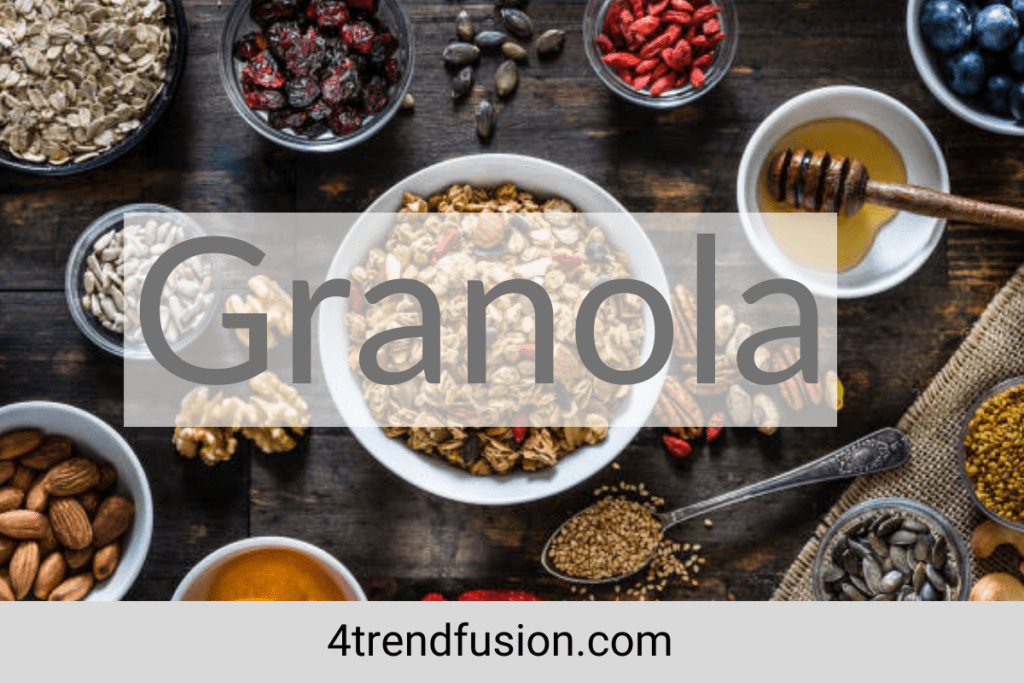
Best Time to Eat: Breakfast or as a midday snack.
When not to eat: Avoid overindulging due to its sugar content.
Per Serving (1/2 cup):
- Calories: 200
- Fats: 7g
- Protein: 5g
- Carbs: 36g
- Fiber: 3g
- Sugar: 12g
Pro Tip: Combine granola with full-fat yogurt and honey for a high-calorie parfait.
14. Dark Chocolate
Dark chocolate is a calorie-dense treat packed with antioxidants and healthy fats.
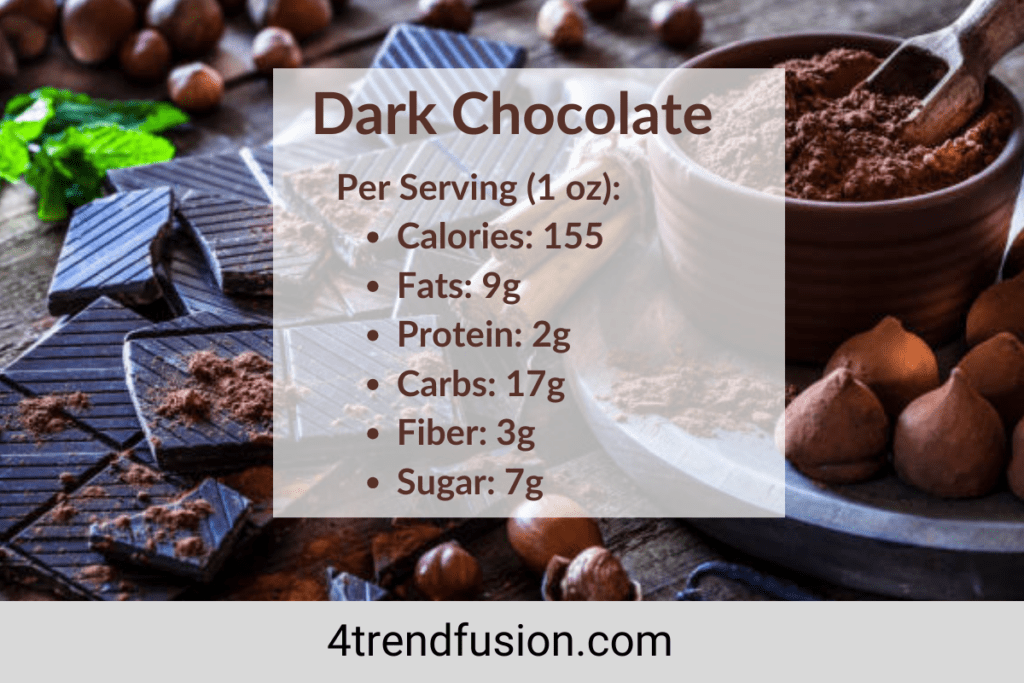
Best Time to Eat: Mid-afternoon or post-dinner.
When not to eat: Avoid eating too much before bedtime.
Per Serving (1 oz):
- Calories: 155
- Fats: 9g
- Protein: 2g
- Carbs: 17g
- Fiber: 3g
- Sugar: 7g
Pro Tip: Use dark chocolate in desserts or eat it with nuts for a calorie-dense snack.
15. Full-Fat Yogurt
Full-fat yogurt is rich in protein, fats, and probiotics, making it a great choice for weight gain.
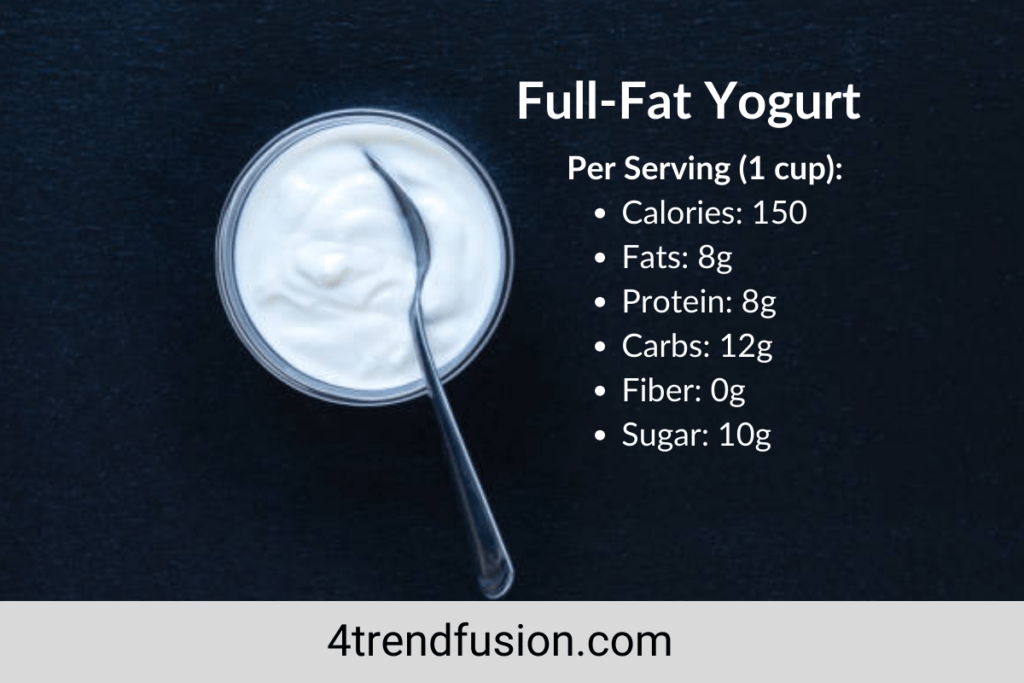
Best Time to Eat: Breakfast or as a snack.
When not to eat: Avoid eating it too close to a heavy meal.
Per Serving (1 cup):
- Calories: 150
- Fats: 8g
- Protein: 8g
- Carbs: 12g
- Fiber: 0g
- Sugar: 10g
Pro Tip: Add fruits, nuts, and honey for a high-calorie yogurt bowl.
16. Coconut Oil
Coconut oil is a concentrated source of healthy fats and calories, ideal for cooking or adding to smoothies.
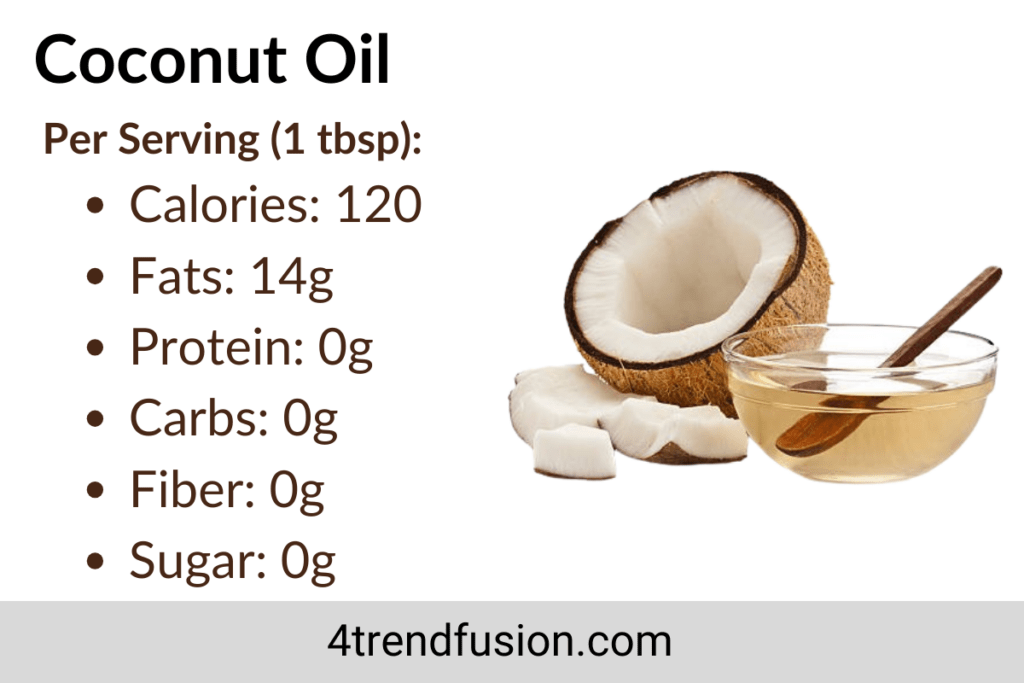
Best Time to use: Morning or afternoon.
When not to use: Avoid consuming too much on an empty stomach.
Per Serving (1 tbsp):
- Calories: 120
- Fats: 14g
- Protein: 0g
- Carbs: 0g
- Fiber: 0g
- Sugar: 0g
Pro Tip: Use coconut oil for frying, baking, or as a topping for oatmeal.
17. Olive Oil
Olive oil is a heart-healthy fat and calorie booster for meals.

Best Time to use: During meals, as a dressing or cooking ingredient.
When not to use: Avoid excessive use at night to prevent overeating on fats before bedtime.
Per Serving (1 tbsp):
- Calories: 120
- Fats: 14g
- Protein: 0g
- Carbs: 0g
- Fiber: 0g
- Sugar: 0g
Pro Tip: Drizzle olive oil over salads, pasta, or grilled vegetables.
18. Protein Shakes
Protein shakes are a convenient way to pack calories, protein, and essential nutrients.
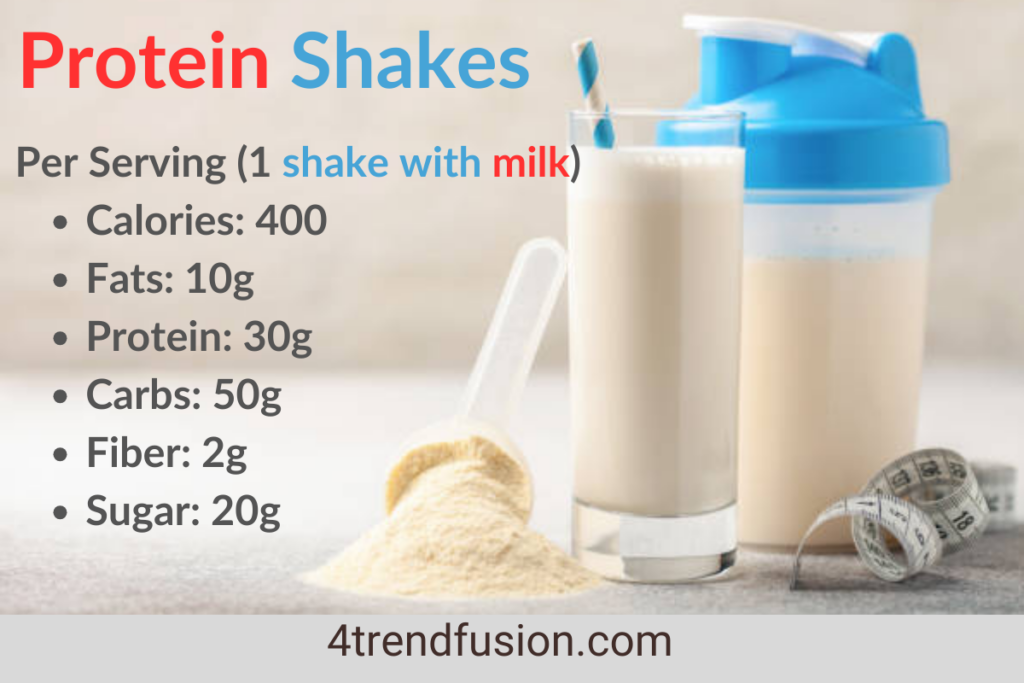
Best Time to use: Post-workout or as a mid-morning snack.
When not to use: Avoid using protein shakes as a night time snack, as they may not be necessary if you’ve already consumed enough protein during the day.
Per Serving (1 shake with whole milk):
- Calories: 400
- Fats: 10g
- Protein: 30g
- Carbs: 50g
- Fiber: 2g
- Sugar: 20g
Pro Tip: Blend protein powder with bananas, peanut butter, and milk for a calorie-dense shake.
19. Dried Fruits (Dates, Raisins)
Dried fruits are rich in calories, natural sugars, and fiber.
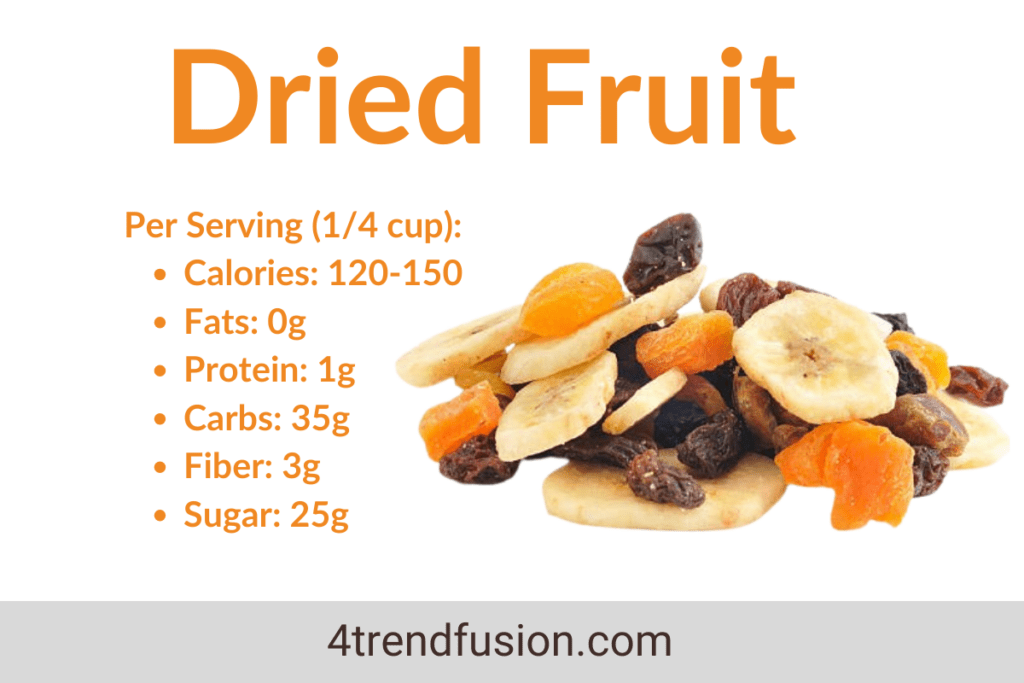
Best Time to Eat: Snack time or pre-workout.
When not to eat: Avoid overconsumption at night, as the high sugar content may spike energy levels, making it harder to fall asleep.
Per Serving (1/4 cup):
- Calories: 120-150
- Fats: 0g
- Protein: 1g
- Carbs: 35g
- Fiber: 3g
- Sugar: 25g
Pro Tip: Combine dried fruits with nuts for a high-calorie trail mix.
20. Honey
Honey is a natural sweetener that provides a quick energy boost.
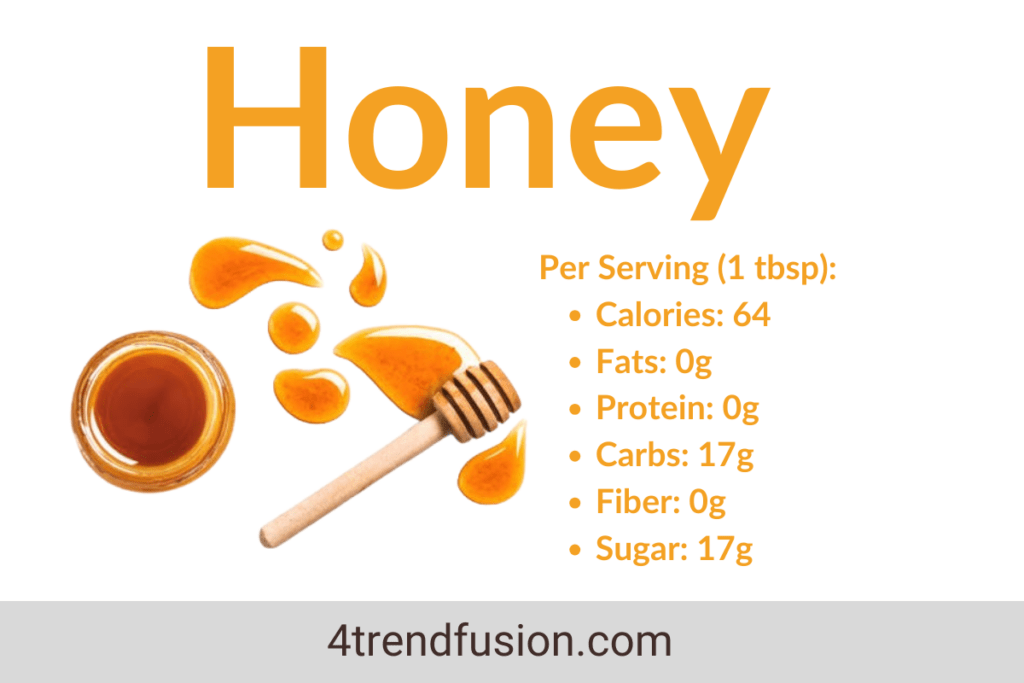
Best Time to use: Morning or pre-workout.
When not to use: Avoid excessive honey consumption at night, as the sugar content can cause a spike in energy and affect sleep.
Per Serving (1 tbsp):
- Calories: 64
- Fats: 0g
- Protein: 0g
- Carbs: 17g
- Fiber: 0g
- Sugar: 17g
Pro Tip: Add honey to tea, oatmeal, or yogurt for a natural calorie boost.
21. Ice Cream
Ice cream is a high-calorie treat rich in fats and sugars, perfect for indulging occasionally.

Best Time to Eat: Afternoon snack or dessert. Avoid eating too late to prevent sugar spikes.
When not to eat: Avoid consuming too much before bedtime, as the high sugar content can disrupt sleep and digestion.
Per Serving (1/2 cup):
- Calories: 250
- Fats: 14g
- Protein: 4g
- Carbs: 28g
- Fiber: 0g
- Sugar: 20g
Pro Tip: Top ice cream with nuts and fruits for extra calories.
22. Sweet Potatoes
Sweet potatoes are a nutrient-rich carb source, high in fiber and natural sugars.
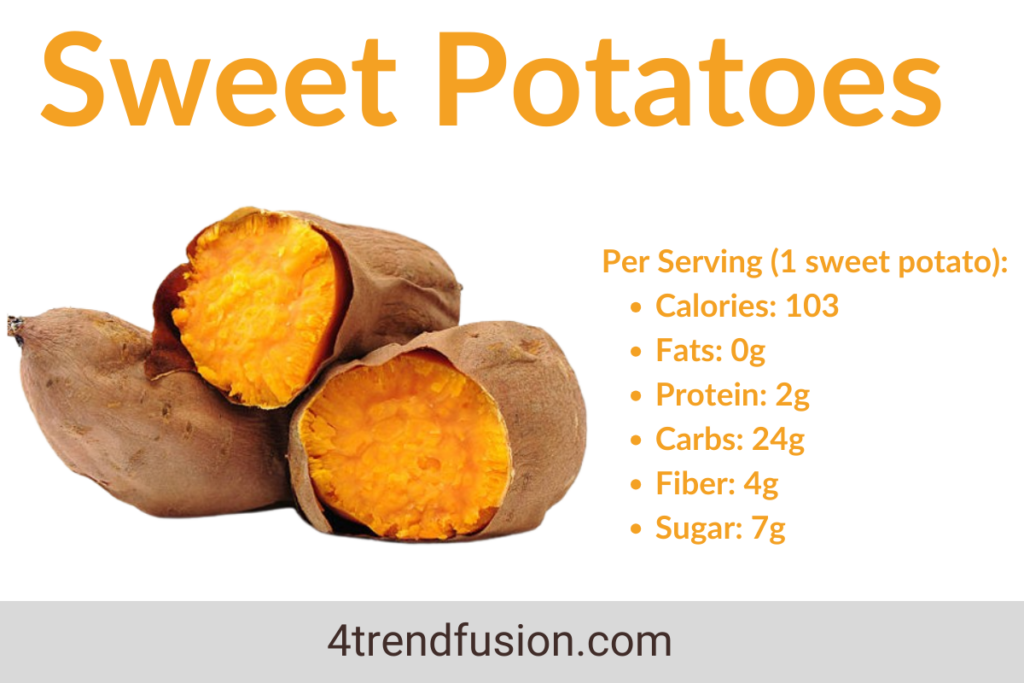
Best Time to Eat: Lunch or dinner.
When not to eat: Avoid large portions late at night, as the high carb content may not be fully utilized while you sleep.
Per Serving (1 medium sweet potato):
- Calories: 103
- Fats: 0g
- Protein: 2g
- Carbs: 24g
- Fiber: 4g
- Sugar: 7g
Pro Tip: Bake sweet potatoes and top them with butter or coconut oil for added calories.
Frequently Asked Questions
1. What are high-calorie foods?
High-calorie foods are foods that provide a significant amount of energy (calories) in a small serving. These foods are usually rich in healthy fats, protein, and carbs, which can help with weight gain.
2. Why do I need high-calorie foods for weight gain?
High-calorie foods are essential for people who struggle to gain weight or build muscle. They provide the extra energy needed to increase body mass without overwhelming you with large portions.
3. Can I eat high-calorie foods if I’m trying to build muscle?
Yes! High-calorie foods are great for muscle gain because they provide the necessary nutrients (like protein and healthy fats) to support muscle repair and growth.
4. Are high-calorie foods unhealthy?
Not necessarily. While some high-calorie foods (like junk food) can be unhealthy, many nutrient-dense, whole foods (like avocados, nuts, and lean meats) are excellent for weight gain and overall health.
5. How many calories should I aim for to gain weight?
It depends on your age, gender, activity level, and metabolism. Generally, you’ll need to consume more calories than your body burns. A calorie surplus of 300-500 extra calories per day is a good starting point.
6. What are some examples of high-calorie foods for weight gain?
Examples include nuts, avocados, whole milk, cheese, eggs, red meat, pasta, rice, and protein shakes. These foods provide a high amount of calories per serving.
7. Can I gain weight by eating high-calorie snacks?
Yes! Snacking on calorie-dense foods like peanut butter, granola, or dried fruits can help you reach your daily calorie target for weight gain.
8. How often should I eat high-calorie foods?
Eat high-calorie foods throughout the day. Include them in all meals and snacks to ensure you’re getting enough calories consistently. Try to have 3 main meals and 2-3 snacks per day.
9. How do I know if I’m eating enough calories for weight gain?
Keep track of your daily calorie intake and weight. If you’re not seeing weight gain over time, you may need to increase your calorie intake. It can help to use a food tracker or consult a nutritionist.
10. Can I gain weight by eating junk food?
While junk food may be calorie-dense, it lacks essential nutrients. For healthy weight gain, focus on whole, nutrient-rich high-calorie foods like those mentioned in this guide.
11. What are some easy high-calorie meals I can prepare?
Some simple high-calorie meal ideas include peanut butter toast with banana slices, pasta with creamy sauces, and smoothies made with full-fat yogurt, protein powder, and fruits.
12. Are there any high-calorie foods suitable for vegans?
Yes! Vegans can choose high-calorie foods like avocados, nuts, seeds, tofu, nut butters, quinoa, coconut milk, and dried fruits.
Conclusion: Fuel Your Weight Gain Journey with High-Calorie Foods
Incorporating high-calorie foods into your diet is a proven and effective strategy for healthy weight gain. From nutrient-dense nuts and avocados to energy-packed carbs like rice and sweet potatoes, these foods provide the essential calories, fats, and proteins needed to fuel your body and achieve your goals.
The key is consistency—balance your meals, time your snacks strategically, and ensure you’re consuming a variety of high-calorie options throughout the day. Remember, it’s not just about quantity but quality, so prioritize whole, nutritious foods over empty calories.
Start adding these foods to your diet today and take a step closer to your weight gain goals.
Disclaimer
The information provided in this article is for general informational purposes only. It is not intended as medical advice. Always consult with a healthcare professional or registered dietitian before making any significant changes to your diet or lifestyle, especially if you have underlying health conditions or specific dietary needs. Individual calorie requirements may vary, and the effectiveness of weight gain strategies can differ based on factors such as metabolism, activity level, and overall health.


